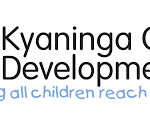Log In
Sign Up

About Us
13% of children in Uganda, more than 2.5 million, are living with a disability.
KCDC offers a unique intervention in children with disabilities lives through a holistic approach that aims at ‘helping all children reach their full life potential’. Our strategies are research and rights based, in line with the United Nations Convention on the Rights of Persons with Disabilities charter of 2006 to which Uganda is a signed up and ratified member country. Our mission follows closely the country’s vision 2040 theme that our interventions now will play a significant part in making both the UN and Ugandan goals bear desired fruits in the future.
Caring for a child with disabilities or additional needs places huge burdens on families and caregivers. KCDC also provides training, education and support to families, carers and communities in the care of children and young adults with special needs.
Since opening in October 2014, the KCDC team has grown to more than 90 permanent staff. Through an extensive community-based outreach programme across seven districts in western Uganda, it reaches over 1,000 children and 25 schools monthly.
Up until the end of June 2024, KCDC had reached more than 7000 children with disabilities and their families, but this is estimated to be less than 1% of the total number of CwDs in the region.

Beyond Therapy
Families of children with disabilities are frequently excluded within their communities due to fear and stigma surrounding disability and the self-burden of families. Our work empowers these families to break the barriers of discrimination, empowering them to demonstrate acceptance, inclusion, diversity, and that every human life regardless of ability, is valuable and deserves access to equal opportunities in all spheres of life.
KCDC serves as a focal point for information, advocacy and networking for families and communities and other organisations in the area, providing relevant information to empower the community to make informed decisions about their health. In addition, we lobby and advocate for fair and inclusive policies and laws that affect the daily life of the disabled community through research, networking and strategic alliance building.
Disability in Uganda
Children with disabilities (CwDs) are one of the most marginalised groups globally. According to statistics from the Ministry of Gender, Labour and Social Development, it is estimated that there are at least 2.5 million (13%) CwDs in Uganda (MGLSD, 2015).
Widespread local beliefs that disabilities are an untreatable curse exclude children and their families from their communities and prevent access to healthcare and education services. The poor local understanding of disability is a huge barrier to the progress, learning and independence of many children, affecting their overall health outcomes and development, impeding the economic independence of their families.
Despite the government attempts to bridge these gaps, there is still weak policy framework, socio-cultural factors that undermine children with disabilities access to essential services, attendance of school, and with limited data on children with disability, it makes effective planning challenging (Ministry of Finance, Planning and Economic Development 2018).

Related
Company Overview
-
Company Size: +1000
